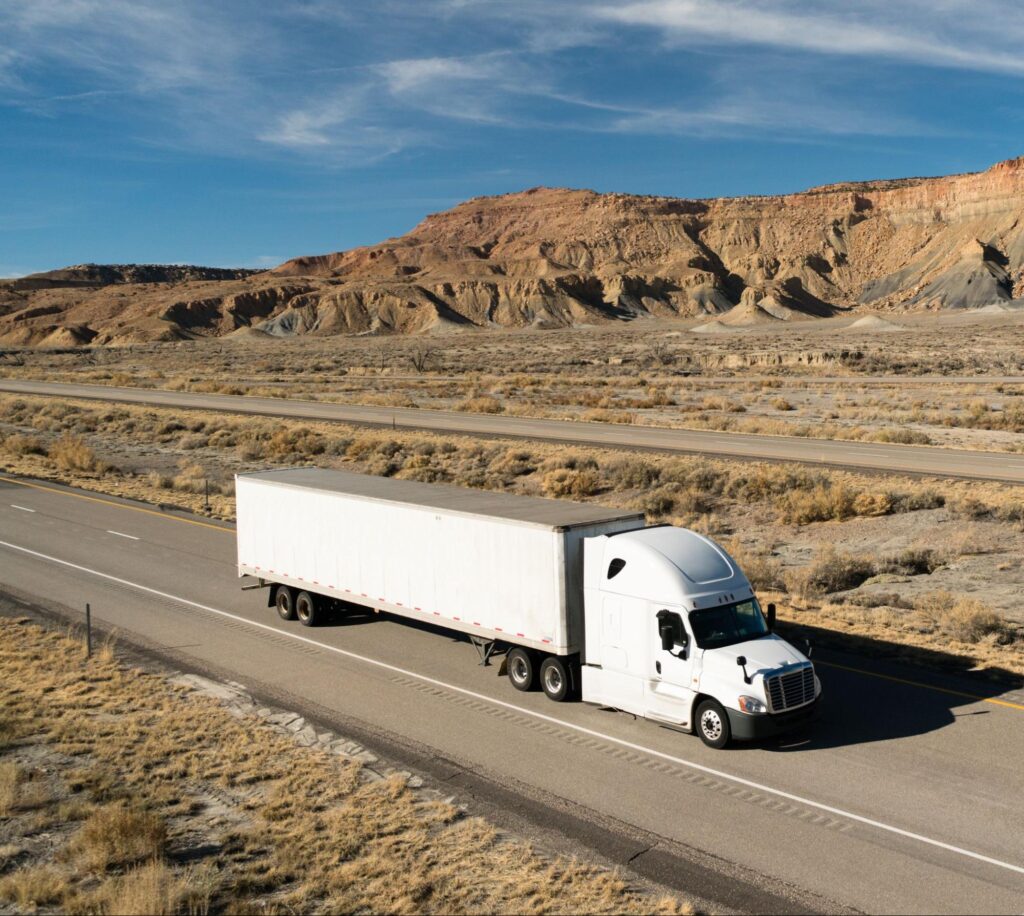Moving across the country? A long-distance move can be an exciting journey full of new opportunities and experiences.
But even though it’s exciting, the logistics of moving cross-country can be a lot to handle. From packing up your belongings to making sure everything gets to the new destination safely, there are lots of factors to consider.
In the United States, there are federal guidelines governing the transportation of goods across state lines. These regulations are meant to make interstate moving services safe, fair, and reliable — and to protect both consumers and moving companies. In this article, we’ll talk about how to navigate these interstate moving regulations so your cross-country move is as smooth and low-stress as possible.

Understanding Interstate Moving Regulations
Interstate moving regulations are designed to manage the challenges of transporting goods across state lines. The Federal Motor Carrier Safety Administration (FMCSA) is the main body responsible for overseeing these regulations. They make sure that moving companies (and other businesses using commercial vehicles) follow federal standards for safety, licensing, and liability coverage. When you’re choosing a moving company, make certain that they’re both licensed and insured! This not only means they’re following the rules, but it also gives you confidence that the company is professional and reliable. These are all important factors in making sure your move goes smoothly.
Key Regulations for Interstate Moves

When you’re moving cross-country, understanding interstate moving regulations can make all the difference. These rules are designed to keep your belongings safe as they cross state lines and to make the journey more efficient. From licensing and insurance to the intricacies of contracts, these regulations help protect you and set clear expectations for the moving company. Being familiar with these guidelines helps you to make informed decisions and avoid potential pitfalls as you’re on the way to your new home. Here are some important regulations to consider:
Registration and Licensing
Every interstate moving company must have a USDOT number from the FMCSA. This number is their unique identifier so that consumers can make sure it’s a legitimate company and is compliant with federal regulations. Always be cautious of moving brokers because they don’t handle the actual move. This can lead to communication issues, unexpected costs, and challenges in resolving disputes if problems arise. Verifying their USDOT number (and the information of their subcontractors) is a way you can avoid these pitfalls.
Insurance Requirements/Valuation Coverage
Movers are required by federal law to offer two different types of liability coverage. Valuation coverage isn’t insurance; it’s a different legal process with different policy terms. Some moving companies also offer mover’s insurance, but that’s something to discuss with your moving partner. When you’re moving cross-country, it’s very important to understand what your valuation level covers. Most moving companies offer released value protection at no extra charge. This is the basic level of coverage and only covers part of an item’s value (often sixty cents per pound, per item). Full-value protection provides comprehensive coverage and is offered at a higher cost. Under full-value protection, movers are accountable for the full replacement value of any damaged or lost items. It’s important to talk about valuation coverage options with your mover and decide which best suits your needs.
Contractual Obligations
The bill of lading is the legal contract between you and the moving company. It outlines all terms and conditions of the move, including services, costs, and delivery dates. It’s always important to look over this document and know your rights and responsibilities to avoid any misunderstandings, but this is especially true when you’re moving cross-country!
Finding a Compliant Moving Company
To find a compliant and reliable moving company, start by verifying their USDOT number through the FMCSA’s database. This tool lets you confirm the company’s credentials and review any past safety violations or complaints. Always watch out for rogue movers! Some red flags are a lack of proper licensing, demanding large upfront payments, or refusing to provide written estimates. A reputable moving company (like Central) will be transparent about their credentials and ready to provide references and documentation.
Planning a Move in Texas?
As an agent for United Van Lines, we provide local, long-distance, and international moving services you can trust. Let our professional Texas movers handle the details for you.
Regulations for Special Items
Some things need extra attention when you’re moving cross-country to another state. Items like cleaning supplies and batteries might have transportation restrictions because of safety concerns. Also, moving plants, pets, and firearms can be tricky since each state has its own set of rules. Be sure to check these regulations ahead of time so you can steer clear of any legal or logistical headaches during your move. An experienced moving partner can help you know what to expect so your move goes smoothly.
State-Specific Considerations

While federal regulations provide a broad framework, each state may have additional laws that impact interstate moves. These can include state-specific taxes, permits, or restrictions on certain goods. Make sure to research the regulations for both your origin and destination state so that you’re aware of any additional requirements or challenges. Again, a quality moving partner (like Central) will be familiar with different states’ regulations, and that can be a lifesaver while navigating this process.
Preparing for an Interstate Move
Preparation is the name of the game when you’re moving cross-country. Begin by organizing all necessary documentation (such as inventory lists, receipts, and contracts) to keep track of your items and agreements. Communicate regularly with your moving company to confirm schedules and services and ensure everyone is on the same page. It’s also important to follow pro packing tips like labeling boxes clearly, using sturdy packing materials, and securing fragile items to meet regulatory standards and protect your belongings.
What To Do in Case of Disputes

If you encounter issues such as damaged goods or a breach of contract, there are several steps you can take. Start by documenting the issue with photographs and detailed notes. Contact the moving company directly to discuss your concerns and seek a resolution. If the company fails to address the problem, consider filing a complaint with the FMCSA or the Better Business Bureau (BBB). In severe cases, legal action may be necessary to recover damages or enforce your rights.
FAQ on Interstate Moving Regulations
1. Do I need a USDOT number for my own move if I’m renting a truck?
Generally, if you’re renting a truck for personal use and not operating as a commercial mover, you do not need a USDOT number. However, make sure to verify with the truck rental company for any specific requirements.
2. What are my rights if my belongings are damaged or lost?
Under federal regulations, you have the right to file a claim with your moving company. The type of liability coverage you selected will determine the level of compensation you’re entitled to. Make sure that you understand what’s covered (and not covered) before the move.
3. How can I tell if a moving company is legitimate?
Verify their USDOT number, read customer reviews, and request references. A legitimate moving company will be transparent about their operations and willing to provide all necessary documentation.

Finding a Moving Company To Go the Distance
Understanding and adhering to interstate moving regulations is essential for a successful cross-country move. By planning ahead and utilizing resources like the FMCSA, you can ensure compliance and enjoy peace of mind throughout the process. Start researching and preparing today to make your move as smooth and stress-free as possible. Remember, a well-planned move is a successful move.


